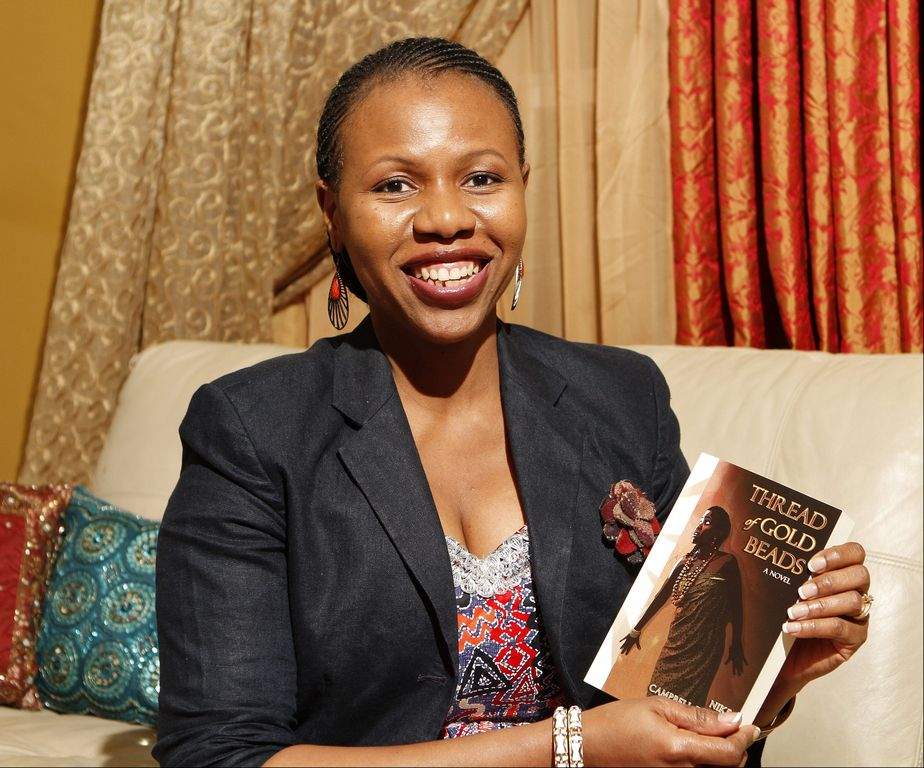This is my second time reading “So long a letter”. It was mandatory in my secondary school. Unfortunately, I can’t recall the exact grade. I commend the fact that this book was made mandatory in several french-speaking countries, but should 12 years old kids read this kind of work?
In any case, let’s say that my subsequent reading was a very different experience. Which is logical, I was way too young to grasp the full meaning and the importance of this work the first time.
Fast forward 2013, I marvel at the literary style and the message behind this very important work. I wish I could say things have changed for the better since this book was published. More than 30 years after Mariama Ba wrote these letters, women are still victims of men’s evil deeds. What is more disheartening is the fact that men are protected implicitly by society ( at least the society that I know). Who is society after all? Men, of course. They have all the leadership roles in key positions, which allowed them to make the rules.
After reading this great novel, I found myself reflecting on “feminism”. What is feminism really? It is nothing more than the fight against injustice and unfairness directed towards women. I don’t care what they say about trying to copy western women. I love this Chinese proverb:
Women hold up half the sky
But first a word about the author
Mariama Bâ (April 17, 1929–August 17, 1981) was a Senegalese author and feminist, who wrote in French. Born in Dakar, she was raised a Muslim, but at an early age came to criticise what she perceived as inequalities between the sexes resulting from African traditions. Raised by her traditional grandparents, she had to struggle even to gain an education, because they did not believe that girls should be taught. Bâ later married a Senegalese member of Parliament, Obèye Diop, but divorced him and was left to care for their nine children. Her frustration with the fate of African women—as well as her ultimate acceptance of it—is expressed in her first novel, So Long a Letter. In it she depicts the sorrow and resignation of a woman who must share the mourning for her late husband with his second, younger wife. This short book was awarded the first Noma Prize for Publishing in Africa in 1980. Bâ died a year later after a protracted illness, before her second novel, Scarlet Song, which describes the hardships a woman faces when her husband abandons her for a younger woman he knew at youth, was published.
All the frustrations that I resent against the cultural set-up of my home country are in this novel. From the ridiculous concept of “The dutiful wife” to the hateful deeds of older men marrying younger girls before they have even finished school by bribing their families with money. These are not the only things that should change, of course. Women’s behavior should change as well. But that is another subject.
Disclaimer, there will be a lot of ranting. Sorry, I can’t let pass this golden opportunity.
Two things that I really hated about Senegal, the author also hated them, mind you, are:
1. Castes systems still alive
You may not know this, but a caste system still exists in the country. It is implicit; no one ever talks about it until there is a wedding and that’s when all hell breaks loose. The traditional social structure of the Wolof people is mainly of social caste. Let’s revisit Senegal’s castes systems briefly:
The aristocracy
a) Geer: They constitute the upper caste where kings or the great dignitaries of the court originated from
The upper-middle-class
b) Diambour: They were not aristocracy but they had a lot of privileges. Usually, we have in this category, wealthy merchants, landowners, powerful spiritual leaders…
The people
c) Badolo: They are free men, mostly living out of agriculture. They were the peasant’s masses working for the upper classes.
Nowadays, all three classes counted as one called the “Geer”. People who are Geer, boast about their illustrate ancestors and noble birth. Obviously, it can’t be true, Only a very small percentage of the population can claim that privilege.
The artisan’s castes
d) Gnegnos: the artisan castes occupy the lower position in the hierarchy, they are traditionally despised by Geers and marginalized. Paradoxically, they have a reputation for good luck, the reasons why, despite everything, they were spared the atrocities that the badolos the (peasants) suffered. They lived on the outskirts of villages, and there are all sorts of myths and legends attached them. They are divided as follows:
-
- The Teugg or maissa Balla, who are blacksmiths and jewelers, often linked to Geer families because they provided their jewelry and weapons for war
- The Laaubes, wood craftsmen of Fulani origin.
- The Woude, leather craftsmen, shoemakers, including women practicing tattoo lips and gums girls, these tattoos were traditionally signs of passage to adulthood in the Wolof culture
- The Rabb or Maabo, the caste of weavers
- The griots Gueweul divided into two parts, there are the griots of the court and the rest of the population, those who have mastered the art of the word, and those who have mastered the most different musical instruments, the xalam, tama…
Would you believe me if I tell you that against all odds, this very social organization has survived through times? And it is alive and well in every corner of the country.
Back to so long a letter, Ramatoulaye’s friend Aissatou was a gnegno, while her husband was a Geer. It means a man from the upper class decides to marry a woman from the lower class. Of course, the mother-in-law couldn’t take it, it’s a classic. Aissatou’s mother-in-law made her life a living hell. She will finally succeed in separating the couple by “forcing” her son to marry another woman from the “aristocracy”. She connived until she attained her goal of getting the gnegno out of her family. Now, what is interesting is Aissatou’s reaction: What would you do if you were in her shoes? She divorced and left for the US. She made a new life for herself and a successful one at that. Mariama Ba wrote this book in 1979. In 2013, this story is still very current.
I think every generation should be judged by the criterion of its own time. The social organization mentioned above was around at the time of the Djoloff kingdom which exists between XIII – 1890. I respect traditions a lot, but is it right to discriminate against your own people? The past is the past. We can’t keep living in the past, we have to move forward and think of the present and the future.
Mariama Ba has indeed inspired an entire generation of battered women to speak out. For the records, I don’t believe in castes systems and such. I know it is supposed to be the tradition of the land, but it is against my principles. I oppose any form of discrimination based on social status, religion, ethnicity, and castes. I should also mention that some people don’t actually follow the castes system anymore, but unfortunately, the majority of Senegal’s 14 million do (more if you count Wolof people in The Gambia and Mauritania). Sadly, educated people are amongst the ones who enforced it with zeal, maybe it’s a kind of elitism.
For the readers who might think that I am ranting because I am from the lower caste. Let me correct that assumption right away, that is not the case. I am from the Geer caste (don’t know which one specifically), which means if I like someone who does not belong to the same caste as me, we are both screwed. That wedding is not happening. I will only have two options: a) forget about it and move on to the next guy or b) rebel against it with all the consequences that go with it. It is really concerning, on top of all the other things you have to worry about.
2. Marriage & Polygamy
We have discussed Aissatou’s situation in the previous section. Let’s take a look at Ramatoulaye’s. Her case is very common in Senegal as well. She was married for 25 years to a man who woke up one day and took a second wife – a 20 years old girl. Not just any young girl, she is her daughter’s friend. As if matters were not bad already, the husband abandoned his first family. He left his children and wife wallowing in poverty,while he lavished riches on his new young wife. Disgusting behaviour of course!
I don’t want to be unfair to men. So I will concede that some men actually have a heart and won’t abandon you, but they will still take a second wife. I am sure it made the first wife feels better about her situation.
It’s true that I am against polygamy. But my issue with Ramatoulaye’s situation is not on that specific aspect, but rather on the fact that the husband married his daughter’s friend. Older men are using the money argument on hungry wanna-be rich parents in order to marry their young daughters. The marriage is done secretly, then the first wife is advised by the Imam of the neighborhood and the male relatives of the husband. The dutiful wife, Ramatoulaye, stay put and endure the whole mess with dignity until the husband died. You will be excused to think that, finally, the bastard got what he deserves. Ramatoulaye will finally rest and enjoy the good life she was supposed to have. Well, I am afraid not. The men left plenty of debts and he even mortgaged their shared property to finance his younger wife’s lifestyle.
Who is to blame? Society? the parents? the husband? the dutiful wife? religion? greed? I strongly believe that as a society, we have to question ourselves about certain traditions.
As a Senegalese, the women of your family will advise you not to jeopardize your marriage seriously?, not to abandon your home, not to deprive your children of their father, to believe and trust in God, to accept God’s will and other similar platitudes. They will also remind you of all the sacrifices you did up to that point. It will be expected of you “the dutiful wife” to graciously accept the second wife or whatever your husband do to you in order to satisfy society.
This is not right. And I am glad people like Mariama Ba saw it way back and denounce it. Now readers, please tell me, what’s you take on these issues?
If you are a woman, this book is mandatory for you. If you are a man, I still recommend this book. I obviously did enjoy it a great deal. And thank God my grand-mother can’t read, otherwise, she would have killed me for writing this post.
Did you read this book? What did you think? What’s you take on African feminism? Should it exist? why? why not?






















